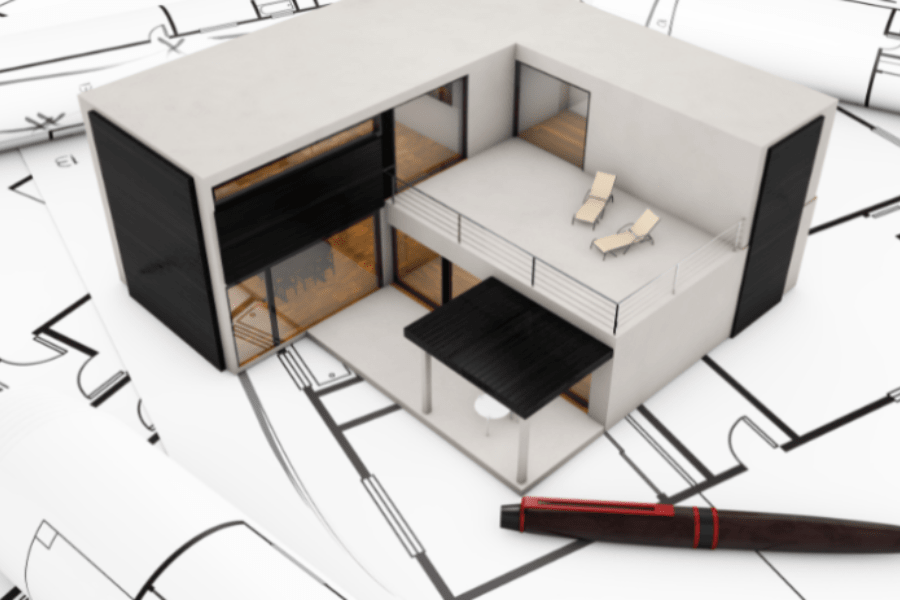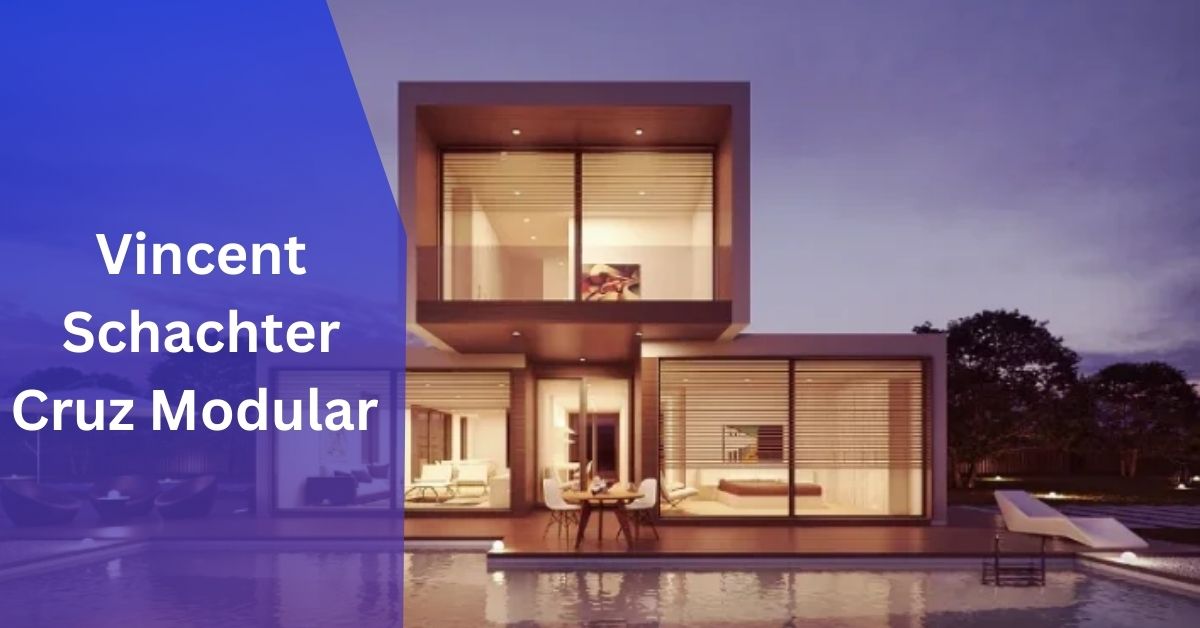Introduction:
In the ever-evolving landscape of design and architecture, the name Vincent Schachter has emerged as a significant figure, particularly with his innovative contributions to modular construction. The Cruz Modular concept represents a revolutionary approach to building that emphasizes efficiency, sustainability, and adaptability.
This article delves into the life and works of Vincent Schachter, the principles behind Cruz Modular, and the broader implications for the construction industry.
Who is Vincent Schachter?

Early Life and Education
Vincent Schachter’s journey into the world of design and architecture began with a solid educational foundation. Raised in an environment that encouraged creativity and innovation, he pursued his studies in architecture at a prestigious university. His academic background laid the groundwork for his future endeavors, enabling him to blend technical knowledge with artistic vision.
Career Development
Schachter’s career has been marked by a commitment to pushing the boundaries of traditional design. He gained recognition for his ability to integrate functionality with aesthetic appeal, leading to collaborations with various firms and institutions. His experience spans residential, commercial, and public sector projects, reflecting a versatile skill set that is increasingly rare in today’s specialized environment.
Philosophy and Design Principles
Central to Vincent Schachter’s approach is the belief that architecture should respond to the needs of the community while being environmentally sustainable. He advocates for designs that are not only beautiful but also practical and efficient. This philosophy is particularly evident in his work with the Cruz Modular concept, where he aims to address the challenges of modern construction.
The Inspiration Behind The Design:
Vincent Schachter Cruz’s modular designs are inspired by the need for flexibility in modern living and communication. With urban spaces shrinking and digital content becoming more demanding, Cruz’s approach integrates creativity with practicality. This inspiration stems from the desire to provide customizable solutions that cater to diverse needs, whether in physical spaces or in writing.
Benefits Of Modular Homes:
Cost Efficiency
Prefabrication significantly cuts labor costs and construction time by assembling homes in a controlled factory environment. This streamlined process minimizes delays associated with weather and site conditions, allowing builders to complete projects faster and reduce overall expenses. As a result, homeowners can benefit from lower initial investment and quicker occupancy.
Sustainability
Modular homes prioritize eco-friendliness by using sustainable materials and energy-efficient building practices. Many manufacturers source recycled materials and incorporate energy-efficient systems, such as solar panels and high-performance insulation, which reduce the environmental impact of construction. This commitment to sustainability helps lower the carbon footprint of the home and supports a healthier living environment.
Also Read: No. 37921-3-Iii State V. Evenson – Case Analysis!
Customization
Modular homes offer a high degree of customization, allowing owners to tailor their living spaces to suit their specific needs and preferences. With various design options, layouts, and finishes available, homeowners can create unique spaces that reflect their personal style. This flexibility means that modular homes can cater to diverse lifestyles, from families needing extra bedrooms to individuals seeking open-concept designs.
Quality Control
Factory-built modular homes undergo strict quality control measures during production, ensuring that each module meets high construction standards. Skilled technicians perform rigorous inspections at various stages of assembly, checking for structural integrity, safety, and compliance with building codes.
How Vincent Schachter Cruz Modular Writing Works?

Modular writing by Vincent Schachter Cruz operates on the same principles as modular architecture. The content is broken down into distinct, reusable blocks or modules. These can be rearranged, expanded, or contracted depending on the context, ensuring that the writing remains adaptable and coherent across different platforms.
How To Get Started With Vincent Schachter Cruz Modular Writing?
- Understand the Basics: Familiarize yourself with modular writing concepts—how content can be divided and how these modules can be reused.
- Plan Your Content: Outline your ideas and decide on the core modules that will form the backbone of your content.
- Draft the Modules: Write each module with a focus on clarity, coherence, and the potential for reuse.
- Assemble the Content: Arrange the modules to form a complete piece, ensuring logical flow and cohesion.
Vincent Schachter Cruz Modular Writing And Plagiarism Prevention:
One of the standout features of Vincent Schachter Cruz’s modular writing method is its effectiveness in preventing plagiarism. By creating unique, modular content, writers can avoid the pitfalls of copying or unintentional repetition. The modular approach promotes originality, as each block of content is crafted independently, making it easier to detect and avoid duplicate content.
Step-by-Step Guide To Vincent Schachter Cruz Modular Writing:
- Identify Key Themes: Determine the main ideas or themes you want to address.
- Create Modules: Write small sections focused on each theme, ensuring they can stand alone or fit into a larger context.
- Review and Edit: Each module should be polished to ensure consistency in tone and style.
- Integrate Feedback: If you’re working in a team, collaborate to refine the modules.
- Publish and Monitor: Once assembled, publish your content and monitor its performance. Make adjustments as needed.
Also Read: Top 10 Ai Solutions In Real Estate Sector In Pakistan – Unlock AI Potential!
The Role of Humanization in Vincent Schachter Cruz Modular Content:
Humanization is crucial in modular content, particularly in how it engages readers. Despite being modular, the content should still feel personalized and relatable. Incorporating storytelling elements, addressing the audience directly, and maintaining a conversational tone are essential to humanizing modular writing.
Vincent Schachter Cruz Modular Writing: Tips And Tricks
Keep It Concise
Each module should convey information clearly and succinctly, avoiding unnecessary jargon or complexity. This ensures that the audience can quickly grasp the essential ideas without feeling overwhelmed, making the content more accessible and effective.
Focus on Flexibility
Design your modules with adaptability in mind, allowing them to be easily modified or repurposed for various contexts or topics. This flexibility not only enhances the longevity of the content but also accommodates changes in audience needs or preferences, keeping the material relevant over time.
Use Visual Aids

Incorporating diagrams, images, or infographics can significantly enhance engagement by breaking up text and illustrating complex ideas visually. Visual aids help to reinforce the content, making it more memorable and easier for the audience to understand the concepts being presented.
Test Variations
Experimenting with different arrangements and formats of your modules can help identify the most effective combinations for conveying information. By analyzing audience feedback and engagement metrics, you can refine your approach to optimize content delivery and improve overall impact.
Optimize for SEO
Ensure that each module includes relevant keywords and phrases strategically placed throughout the text. This optimization boosts search engine rankings, making it easier for potential readers to discover your content while enhancing its visibility and reach within search engine results.
Researching Different Manufacturers And Models:
When considering modular homes or writing styles, researching various manufacturers and models is essential. Understanding the differences in quality, design, and functionality can help you make an informed decision. In writing, this translates to exploring different content strategies and frameworks that align with your goals.
Also Read: [Img]Http://Lookpic.Com/Cdn/I2/S/05302024032148-003.Jpg[/Img] – Analyzing The Image!
The Future Of Content Creation With Vincent Schachter Cruz Modular Writing:
As digital content demands evolve, modular writing is poised to become increasingly relevant. This method offers a scalable solution for content creation, enabling writers and marketers to produce high-quality content more efficiently. The adaptability of modular writing will likely lead to its widespread adoption in various industries.
Comparison With Other Modular Designs:
Vincent Schachter Cruz’s modular writing approach can be compared to other modular designs, such as those used in architecture or software development. Each shares common principles of efficiency, flexibility, and reusability. However, Cruz’s method stands out for its emphasis on creativity and humanization in content.
FAQ’s:
1. What is Cruz Modular?
Cruz Modular is an innovative modular construction method developed by Vincent Schachter that emphasizes efficiency, sustainability, and flexibility in building design.
2. How does modular construction differ from traditional construction?
Modular construction involves prefabricating building components off-site and assembling them on location, leading to reduced construction time and costs compared to traditional methods.
3. What are the benefits of Cruz Modular?
Benefits include cost savings, quick assembly, high-quality control, and sustainable practices that minimize environmental impact.
4. Can Cruz Modular be used for commercial buildings?
Yes, Cruz Modular is versatile and can be applied to both residential and commercial construction projects.
5. What materials are typically used in Cruz Modular construction?
The materials used in Cruz Modular are chosen for their sustainability and energy efficiency, including eco-friendly options.
6. Is modular construction less durable than traditional construction?
No, modular buildings can be built to meet or exceed the same durability and quality standards as traditional construction, often with better quality control.
7. How does Cruz Modular address housing shortages?
By enabling rapid construction of housing units, Cruz Modular can help meet urgent housing demands in urban areas effectively.
8. What role does technology play in Cruz Modular?
Technology enhances the modular building process through improved design software, smart home integrations, and efficient manufacturing techniques.
Conclusion:
Vincent Schachter and the Cruz Modular concept represent a significant shift in the construction industry, combining innovation with sustainability. As we continue to face challenges related to urbanization and environmental impact, modular construction offers a viable solution that can lead to a more sustainable future. By embracing these principles, we can create spaces that are not only functional but also harmonious with the environment.








